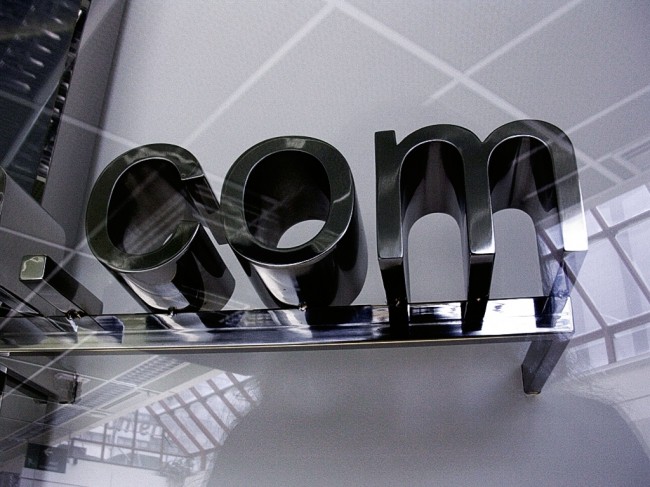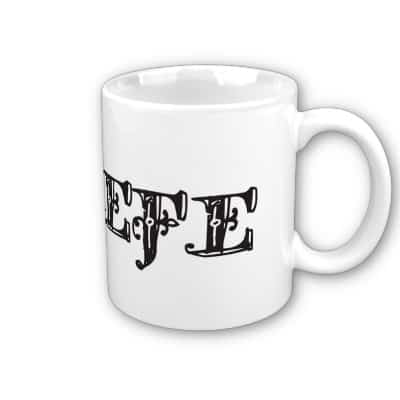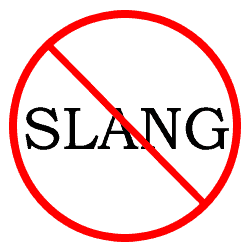Picking a domain name is a very important aspect of your site creation, because your choice can influence how hard and long you’ll have to move to the top. Plus it’s going to be the brand name that your customers and prospects will find you by. That’s why it’s important to know how to select a domain name in the proper way. I’ve collected a few tips that should give you an idea about what factors to keep in mind while selecting a domain name for your online business. I tried to create the list in descending order but that is a very subjective thing in many cases. So, don’t rely on that too much. Just see what’s most crucial for your particular case.
Screencast on How to Select a Domain Name
I made the screencast for you guys if you don’t like reading stuff. So, you can either just watch the video or read the article. Whatever works best for you. By the way, the slideshow that I used in the video is at the very bottom of the post.
The WebDesy Podcast
What’s more, I launched a podcast so that you can just download the episode you like and listen to it while commuting or working out in the gym. You can click this link to subscribe via iTunes.
Dot-Com it!
You definitely need to make sure that your domain name is a .com TLD (Top Level Domain). That’s because most people assume that it should be like that. For example, if somebody memorized that your site is called “WebDesy”, they’ll most likely add “.com’ in the end. So, whenever possible – even if you have to shell out a bit – just buy that domain name, because doing so you make sure that you don’t lose your customers.

Once you got your .com name, you also need to obtain the .net and .org versions of it, because you may also lose customers if some of them go to .net or .org for some reason or other.
The funny part is that WebDesy did not go that extra mile and did not register neither the .org nor .net version. So, if I really get on your nerves some day, you may want to register those domain names so that I get less customers and money. It was a joke actually. Again, don’t get me wrong and don’t do that. Please … 🙂
Seriously speaking, that proves one more time that you need to learn how to select a domain name BEFORE you actually do it.
Easy to Type
One more thing to keep in mind is that your domain name should be easy to type. For starters, if it’s not, your prospects can go to a different site (let alone a competitor’s). Secondly, they can just see a broken page (if the domain name is not taken), decide that your business has gone belly up, and turn to your rivals, again. Thirdly, in case your domain is easy to type, people are more likely to do it. Just remember that we are all lazy bones. I personally would not type in a domain name if I’m pretty much sure that I’ll mistype something. I guess we just really got used to clicking things rather than typing. And if you must type, it should be something really short. Like Twitter.com and the like.

By the way, I’m not sure if only I do it like that, but when I’m lazy to type some web address correctly, I just do it carelessly right in the Google search area and then just click on the correct version that Google prompts me. Is it just me or you guys out there do something similar?
Easy to Remember
When your site and consequently brand gets more or less well-known, people will start talking about you. That’s why you need to ensure that your name is easy to remember so that John can easily recall the website name that Jack gave him the other day. Other than that, it just makes sense that people should be able to effortlessly keep your website name in their minds and refer to it when needed.
Keep it Short
You need to keep your website name short because you want people to easily type it in their browser address bars (especially if your audience likes using smartphones). Plus it makes your domain name easier to memorize. And you’ll be able to place your domain name on your business cards or any other branded stuff. Otherwise it can be an issue if you want to put your brand name on some office supplies.

Make Spelling Guessable
It’s a big thing as well, because you want people to be able to spell your domain name if they hear it somewhere (in a podcast or something like that). In the case of WebDesy.com, I actually stumbled upon an issue that I still need to take care of. The point is that it’s highly likely that you can misspell WebDesy.com and type in WebDaisy.com instead. The problem is that WebDaisy.com actually exists and there’s a nice daisy image in the middle of the home page. It sounds that I’ll have to contact the owner and buy the domain from him. It’s not really crucial at this point because there’s less than 10 monthly searches for ‘webdaisy’ now, but you never know what will happen when I promote my site and prospects start going to Webdaisy.com instead of Webdesy.com . Since the owner does not seem to be doing much on the site, I hope I’l be able to talk him over. 🙂
Neither Hyphens Nor Numbers
Using both hyphens and numbers can cause confusion and you’ll have to explain every single time how to properly spell your website address. Just stick with words put together if you want to have two or more words in your domain name.
Back in the day, I used to work in a company, which had a domain name with a hyphen. And when talking over the phone, I had to always explain how to properly spell the name of the site (if they needed to find a specific info and wanted me to walk them through step-by-step). They were asking all the time,” Is it a dash or a hyphen?” And stuff like that. So, apart from SEO issues, it can cause pretty major concerns in terms of making both your site and domain name user friendly.
Commercial Appeal
The idea is that your brand name and website address should look great in terms of commercial use. It should be short, memorable, and vivid. You should have no problem with placing it on billboards and city lights, advertising on the radio or TV. Make sure that you are 100% confident that your brand name is not causing any negative hints or assumptions in the language of your target audience. Some car manufacturer called their car “Nova”, which means “no go” in Spanish (no va). The chances are it’s not the best slogan for a car. 🙂 It goes without saying that they had no big success in the Spanish-speaking world. So, you need to double-check what your brand name (or website name) means in the language of the country where you want to do business.

Numeral Substitutions
Nowadays it’s pretty often and normal (to an extent) to see phrases like “4 you”, “gr8”, “m8”, etc, but it’s most definitely not a good idea to use such grammatical constructions in domain names, because it’ll cause a lot of confusion and misunderstanding of how exactly to spell your domain name. If you’re really tempted to use something like that, just think whether it’s worth it. Use it and lose a portion of your customers or not use it and get more customers for your business. What do you say?
No Slang
Just like in the case of using numerical substitutions, you should avoid slang words like “u” (instead of “you”) and so on. Though it may sound really cool, odds are using such words can confuse your prospects and the last thing any business wants is a confused customer. That’s because a confused customer does not buy stuff.

Be Careful With Discoverable Domains
Discoverable domains (also known as “exact match domains’) are those that have keywords in them. For instance:
www.purses.org
www.teethwhitening.com
They used to work pretty well back in the day, but things have changed since the Google’s EMD update. The update struck hard low-quality sites that used keywords in their domains names. Again, low-quality sites only seem to have suffered from this update. It means that if you want to use such a domain name, you need to ensure that your site is a high-quality one at all times. That boils down to the fact that Google just removed the advantage that EMD owners had before the update. And that’s about it.
Before the update, if a new website owner could not find a good domain name (with keywords in the website address), he would get upset and it made certain sense, because having a keyword in your domain name meant better rankings, but it’s not important any more.
As a matter of fact, you need to create high-quality sites in any case (regardless of any Google updates), but in the case of an exact match domain, you’ll have to make sure that your site is of really top notch quality, because otherwise you’ll most likely be hit hard by almighty Google.
Brainstorm
One of the best practices of coming up with domain name ideas is to select about 5 keywords that your site will be about and just try to create a name based on them by mixing and matching.
In case you want to use a discoverable domain name (exact match or partial match domain), you just need to see how you can combine your keywords so that they make sense both for the user and Google. If WebDesy wanted to go that route, we would try to combine words like “web design”, “webdesign”, “company”, “bureau”, “web designers”. So the domain name would most likely be something along the lines of “webdesignbureau.com” or something like that.

If you want to make a brandable domain name – just like we did at WebDesy.com – you need to use your keyword to create a domain name that is memorable and at the same time it should be obvious right off the bat what your site is all about. Otherwise people will leave it in a matter of milliseconds. We just took the “webdesign” word and modified it so that it’s a unique name, but the user won’t have to think twice while figuring out what we actually do. We do webdes…ign. Nuf said. 🙂
As a matter of fact, I’m changing what I’m gonna write about on the blog and what services I’ll be providing on the site, because I’m taking over the whole site (my former partners decided to do other things) and I think that it makes sense to write about what I can do best. And since I’m in content promotion (aka SEO) now, I’ll focus mostly on the topics related to search engine optimization. That proves one more time that branded domain names allow you to easily change the range of topics that you wanna cover on your blog.
Uniqueness
You need to strive for being as unique with your domain name as possible. Don’t just use a misspelling or the plural form of a well-known website name. In the first place, it’s just lame. Secondly, if you want to be a respectful company, such a domain name will prevent you from becoming one. And that brings me to the closing portion of the article where you can find a slew of the tools that help you come up with a great name for your website.
Domain Name Generators
The following tools will help you get started with generating ideas for your domain name. You may want to try all of them, because they work based on different principles, and then just see which one gives the result that fits your needs and provides the look and feel you’re looking for.
- Domjax.com
- Domaintools.com
- Domainsbot.com
- Domai.nr
- Dotomator.com
- Bustaname.com
- Domize.com
- Squurl.com
- Dnscoop.com (allows to value what your site is worth)
- StuckDomains.com (check for expired domains)
- NameBoy.com (with a rhyming feature)
Slideshow
And here’s the slideshow that I used in the video (the screencast at the top of the page). You may want to bookmark or save it for further reference.
Conclusion
In order to really comprehend the idea on how to select a domain name, you need to think what is best for your visitor. And just go from there. Your user wants your website address to be unique, easy to memorize and spell out. Plus the name of your site should make it totally clear what you offer on your site (services or products) so that the visitor does not have to waste his time trying to figure that out. So, user friendliness – first and SEO – last.
What can you add to the list of tips on how to choose the best domain name? Do you know something I did not cover?





